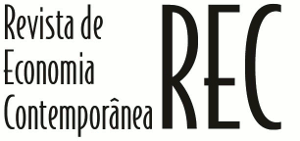ABSTRACT
Beyond representing coordination or government failures, the Brazilian financial crisis in the 1980s characterized the dominance of financial interests on public policies. This paper shows that such dominance began with the external debt negotiations in 1982, which put international creditors’ interest first. It argues that the imposed external adjustment - specially the exchange rates devaluation, public investment cuts and the hike in real interest rates - generated recession and financial instability (notoriously inflation), which would threat depreciating private wealth. Therefore, both the external adjustment and the private wealth protection only turned possible due to the increasing public deficits and debts - including by transferences of debt from private to public sector. The dominant perspective, found in the literature on the period, blaming government deficits and debts for the financial instability of the 1980s is wrong. Economists, even heterodox ones, still believe that Brazil’s financial crisis in the 1980s resulted from budget deficits and public debts. This paper shows, contrary to the dominant view, that once the public sector had to allow private wealth adjustment to the external conditions imposed by foreign creditors, public deficits were the only possible outcome in that conditions.
KEYWORDS:
external debt negotiations; financial instability; net transfer; budget deficits; public debts; financial interests

 Source: Author’s elaboration based on data extracted from the Brazilian System of National Accounts (IBGE, 2018).
Source: Author’s elaboration based on data extracted from the Brazilian System of National Accounts (IBGE, 2018).
 Source: Author’s elaboration based on data extracted from Conjuntura Econômica (FGV, various years).
Source: Author’s elaboration based on data extracted from Conjuntura Econômica (FGV, various years).
 Note: Official Commercial Banks do not include Banco do Brasil.Source: Author’s elaboration based on data extracted from Annual Reports by Banco Central do Brasil (BCB, various years).
Note: Official Commercial Banks do not include Banco do Brasil.Source: Author’s elaboration based on data extracted from Annual Reports by Banco Central do Brasil (BCB, various years).